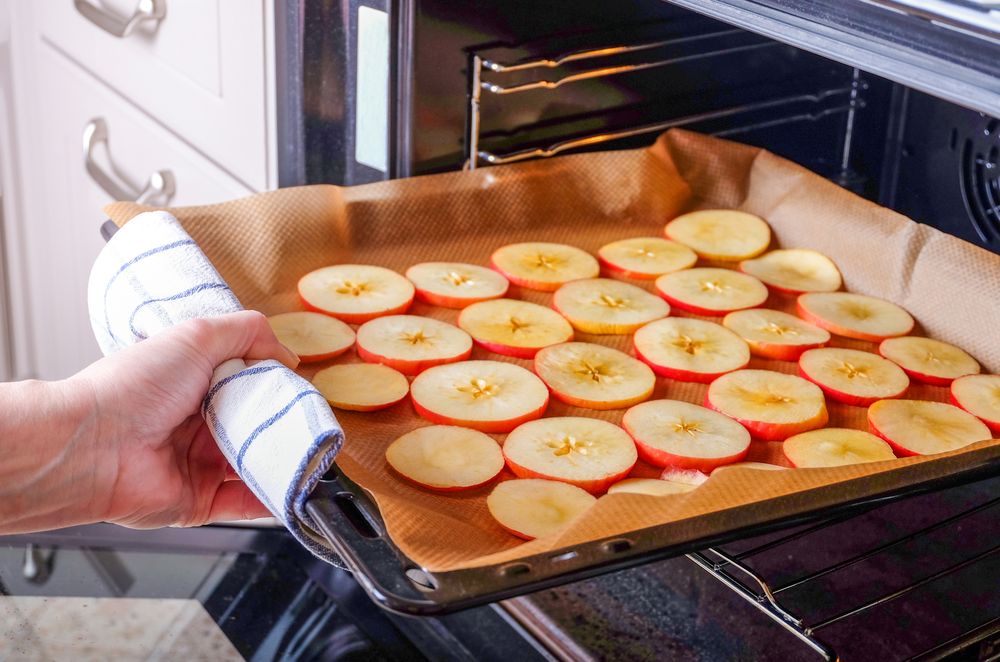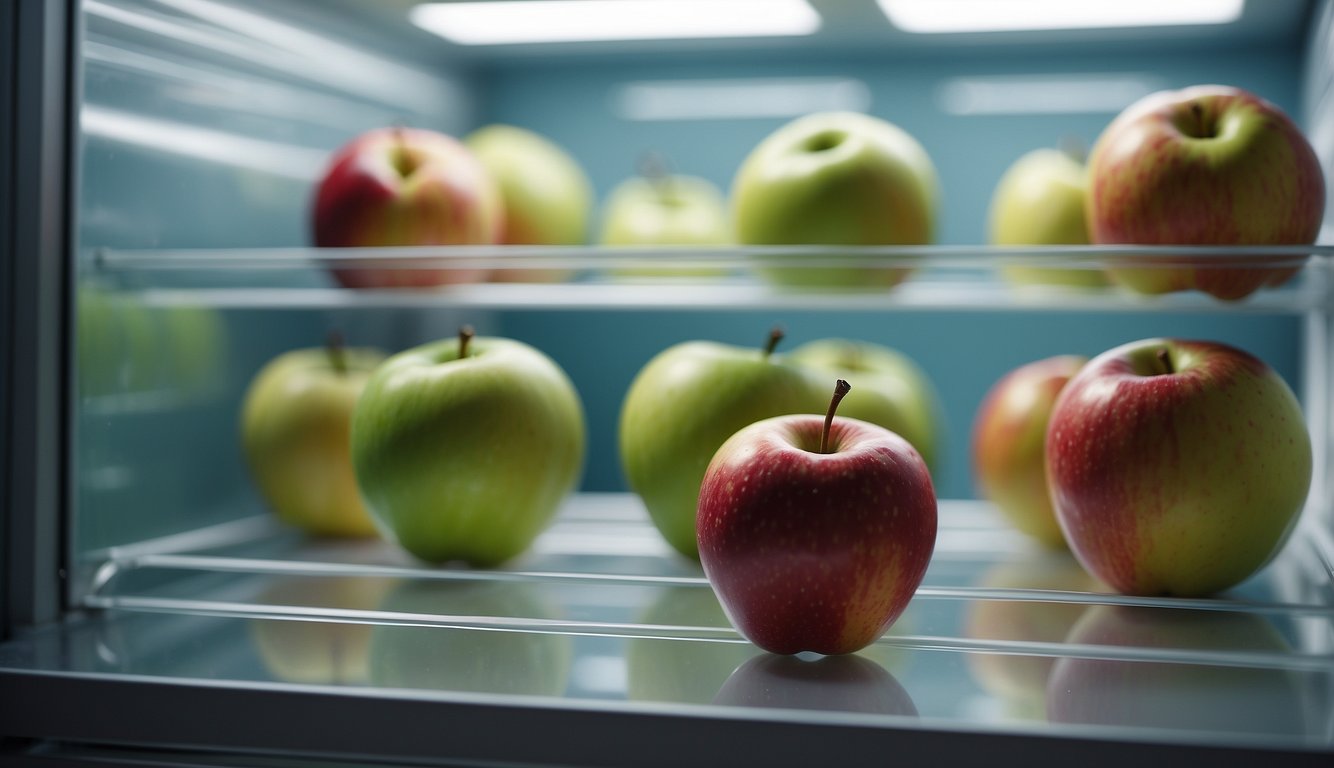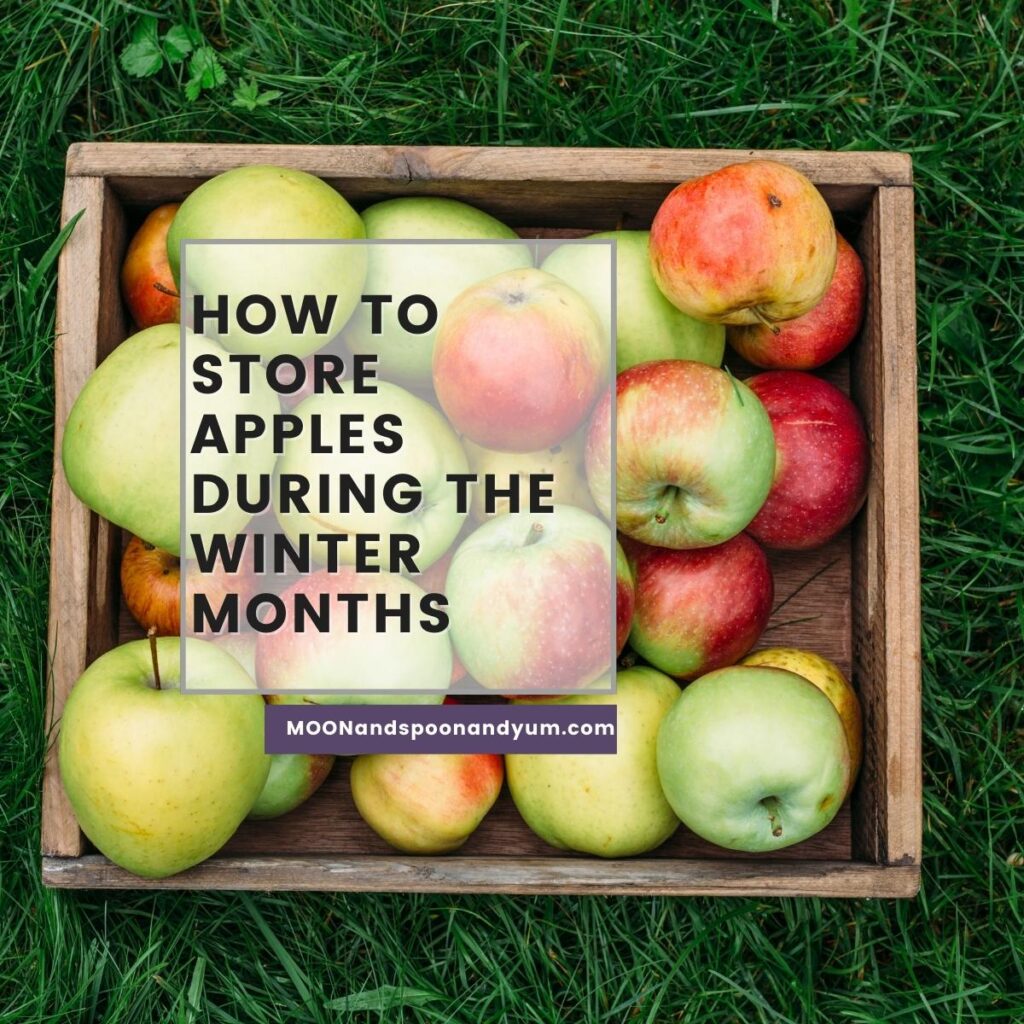Understanding Apple Storage Basics
Proper apple storage is crucial to maintaining the freshness and quality of this popular fruit. Different storage methods can significantly impact the shelf life of apples, making it essential to understand the basics of apple storage. Whether you’re looking to store apples for a short period or keep them fresh for several months, knowing the right techniques can make all the difference.
Apples are a delicate fruit that requires specific conditions to stay fresh. Temperature, humidity, and air circulation are critical factors that affect the storage life of apples. When stored properly, apples can last for several weeks to a few months, depending on the variety and ripeness. However, improper storage can lead to spoilage, decay, and a loss of flavor and texture.
One common question many people ask is, “Can I store apples in the fridge?” The answer is yes, but it’s essential to understand the benefits and potential drawbacks of refrigerating apples. Refrigeration can slow down the ripening process, but it can also affect the flavor and texture of the apples if not done correctly.
In this article, we will delve into the world of apple storage, exploring the best methods for keeping your apples fresh and delicious. We will discuss the pros and cons of refrigerating apples, as well as alternative storage methods that can help you enjoy your apples for longer.
Can Apples Be Stored in the Fridge?
The answer to this common question is yes, apples can be stored in the fridge. In fact, refrigeration is one of the most effective ways to keep apples fresh for a longer period. When stored in the fridge, apples can last for several weeks to a few months, depending on the variety and ripeness.
Refrigerating apples can slow down the ripening process, which helps to maintain their freshness and quality. The ideal storage conditions for apples in the fridge are a consistent temperature between 32°F and 40°F (0°C and 4°C) and high humidity. This environment helps to slow down the production of ethylene gas, which is responsible for the ripening process.
However, it’s essential to note that refrigerating apples can also have some drawbacks. For example, apples can absorb odors from other foods stored in the fridge, which can affect their flavor and aroma. Additionally, refrigeration can cause apples to become mealy or soft, especially if they are not stored properly.
Despite these potential drawbacks, refrigerating apples is still a great way to keep them fresh for a longer period. By following some simple storage tips and guidelines, you can enjoy your apples for several weeks to a few months.
How to Store Apples in the Fridge for Optimal Freshness
To store apples in the fridge for optimal freshness, follow these step-by-step instructions:
1. Choose the right container: Select a container that is breathable, such as a paper bag or a mesh bag. Avoid using plastic bags or airtight containers, as they can trap moisture and cause the apples to become mealy.
2. Set the temperature: Store the apples in the crisper drawer of your fridge, where the temperature is typically between 32°F and 40°F (0°C and 4°C). This temperature range will help to slow down the ripening process.
3. Maintain high humidity: Keep the humidity level in the crisper drawer high by placing a damp cloth or a bowl of water near the apples. This will help to maintain the apples’ natural moisture and prevent them from becoming dry and mealy.
4. Monitor the apples: Regularly check the apples for signs of spoilage, such as soft spots, mold, or a sour smell. Remove any spoiled apples to prevent them from affecting the other apples.
5. Store apples separately: Store each apple separately to prevent them from coming into contact with each other. This will help to prevent the spread of spoilage and maintain the apples’ individual freshness.
By following these simple steps, you can store apples in the fridge for optimal freshness and enjoy them for several weeks to a few months.
Alternative Storage Methods for Apples
While refrigeration is an effective way to store apples, there are alternative storage methods that can also help to maintain their freshness and quality. Here are a few options:
Room Temperature Storage: Apples can be stored at room temperature for a short period, typically up to a week. This method is best for apples that are already ripe and will be consumed quickly. However, it’s essential to keep the apples away from direct sunlight and heat sources, as this can cause them to spoil faster.
Cool Dry Places: Apples can be stored in cool, dry places such as basements or cellars. This method is ideal for apples that are not yet ripe, as the cool temperature will help to slow down the ripening process. However, it’s crucial to ensure that the storage area is well-ventilated and free from moisture, as this can cause the apples to rot.
Specialized Apple Storage Containers: There are specialized containers designed specifically for storing apples, such as apple keepers or apple savers. These containers are typically made of breathable materials and are designed to maintain a consistent level of humidity and temperature. They can be a great option for storing apples, especially if you don’t have access to a fridge or cool dry place.
When choosing an alternative storage method, it’s essential to consider the type of apple, its ripeness level, and the storage conditions. By selecting the right storage method, you can help to maintain the freshness and quality of your apples and enjoy them for a longer period.
Factors Affecting Apple Storage: Variety, Ripeness, and Handling
The storage outcome of apples can be significantly impacted by several factors, including the variety, ripeness level, and handling practices. Understanding these factors can help you select the best apples for storage and handle them gently to prevent damage.
Apple Variety: Different apple varieties have varying storage requirements. For example, some varieties like Granny Smith and Fuji are known to store well for longer periods, while others like McIntosh and Red Delicious are more prone to spoilage. When selecting apples for storage, choose varieties that are known to store well and are suitable for your storage conditions.
Ripeness Level: The ripeness level of apples can also impact storage outcomes. Apples that are not yet ripe can be stored for longer periods, as they will continue to ripen during storage. However, apples that are already ripe should be consumed quickly, as they will spoil faster. Check the apples regularly for signs of ripeness, such as a sweet aroma and a slight softening of the skin.
Handling Practices: The way you handle apples can also impact storage outcomes. Apples should be handled gently to prevent bruising and damage. Avoid washing the apples before storage, as excess moisture can cause them to spoil faster. Instead, gently wipe the apples with a clean cloth to remove any dirt or debris.
By considering these factors, you can select the best apples for storage and handle them gently to prevent damage. This will help to maintain the freshness and quality of your apples and ensure they remain edible for a longer period.
Common Mistakes to Avoid When Storing Apples
When storing apples, there are several common mistakes to avoid in order to maintain their freshness and quality. Here are some of the most common mistakes and how to avoid them:
Storing Apples Near Strong-Smelling Foods: Apples can absorb odors from nearby foods, which can affect their flavor and aroma. To avoid this, store apples away from strong-smelling foods like onions, garlic, and fish.
Using Plastic Bags: Plastic bags can trap moisture and cause apples to become mealy or develop off-flavors. Instead, use breathable bags or containers to store apples.
Not Monitoring Temperature and Humidity: Apples require a consistent refrigerated environment to stay fresh. Make sure to monitor the temperature and humidity levels in your storage area to ensure they are within the optimal range.
Not Handling Apples Gently: Apples can be bruised or damaged easily, which can affect their quality and freshness. Handle apples gently when storing them, and avoid washing them before storage.
By avoiding these common mistakes, you can help to maintain the freshness and quality of your apples and enjoy them for a longer period.
Monitoring Apple Freshness and Detecting Spoilage
Regular monitoring of apple freshness and detection of spoilage is crucial to maintaining their quality and preventing waste. Here are some tips on how to monitor apple freshness and detect spoilage:
Visual Inspections: Regularly inspect apples for signs of spoilage, such as soft spots, mold, or discoloration. Check for any visible damage or bruising, which can affect the apple’s texture and flavor.
Smell Tests: Apples that are spoiling will often give off a sour or unpleasant odor. Check the apples regularly for any unusual smells, and remove any that have an off smell.
Texture Checks: Apples that are spoiling will often become soft or mealy. Check the apples regularly for any changes in texture, and remove any that are no longer firm and crisp.
By regularly monitoring apple freshness and detecting spoilage, you can help to maintain the quality of your apples and prevent waste. Remember to always handle apples gently and store them in a cool, dry place to help extend their shelf life.
Conclusion: Enjoy Your Apples for Longer with Proper Storage
In conclusion, proper apple storage is crucial to maintaining their freshness and quality. By following the tips and guidelines outlined in this article, you can enjoy your apples for a longer period and reduce food waste.
Remember, the key to proper apple storage is to maintain a consistent refrigerated environment, handle apples gently, and monitor their freshness regularly. By doing so, you can keep your apples fresh for several weeks to a few months, depending on the variety and storage conditions.
Whether you’re storing apples in the fridge, at room temperature, or in a cool dry place, the principles of proper apple storage remain the same. By understanding the factors that affect apple storage and taking steps to maintain their freshness, you can enjoy your apples for a longer period and make the most of your purchase.
So, go ahead and try out the storage methods and tips discussed in this article. With proper storage, you can enjoy your apples for longer and make the most of your investment.







